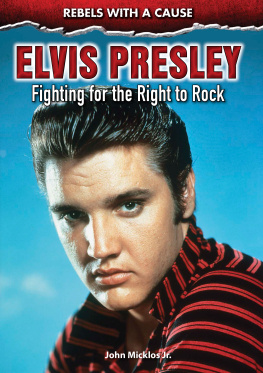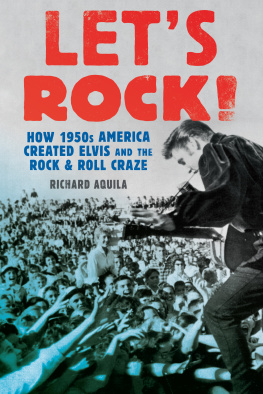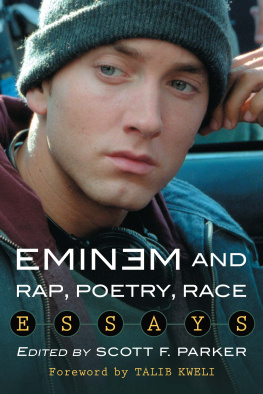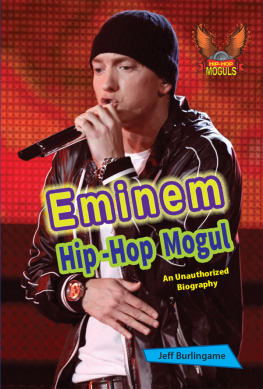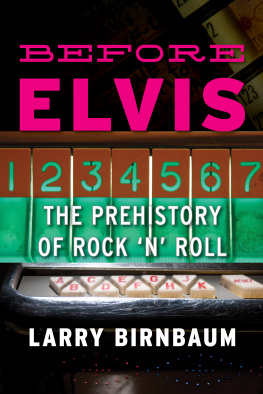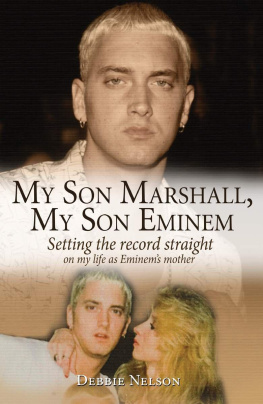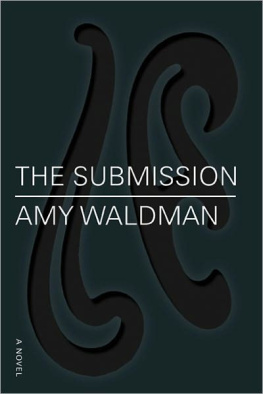Tom Waldman - We All Want to Change the World: Rock and Politics from Elvis to Eminem
Here you can read online Tom Waldman - We All Want to Change the World: Rock and Politics from Elvis to Eminem full text of the book (entire story) in english for free. Download pdf and epub, get meaning, cover and reviews about this ebook. year: 2013, publisher: Taylor Trade Publishing, genre: Politics. Description of the work, (preface) as well as reviews are available. Best literature library LitArk.com created for fans of good reading and offers a wide selection of genres:
Romance novel
Science fiction
Adventure
Detective
Science
History
Home and family
Prose
Art
Politics
Computer
Non-fiction
Religion
Business
Children
Humor
Choose a favorite category and find really read worthwhile books. Enjoy immersion in the world of imagination, feel the emotions of the characters or learn something new for yourself, make an fascinating discovery.

- Book:We All Want to Change the World: Rock and Politics from Elvis to Eminem
- Author:
- Publisher:Taylor Trade Publishing
- Genre:
- Year:2013
- Rating:5 / 5
- Favourites:Add to favourites
- Your mark:
- 100
- 1
- 2
- 3
- 4
- 5
We All Want to Change the World: Rock and Politics from Elvis to Eminem: summary, description and annotation
We offer to read an annotation, description, summary or preface (depends on what the author of the book "We All Want to Change the World: Rock and Politics from Elvis to Eminem" wrote himself). If you haven't found the necessary information about the book — write in the comments, we will try to find it.
Tom Waldman: author's other books
Who wrote We All Want to Change the World: Rock and Politics from Elvis to Eminem? Find out the surname, the name of the author of the book and a list of all author's works by series.
We All Want to Change the World: Rock and Politics from Elvis to Eminem — read online for free the complete book (whole text) full work
Below is the text of the book, divided by pages. System saving the place of the last page read, allows you to conveniently read the book "We All Want to Change the World: Rock and Politics from Elvis to Eminem" online for free, without having to search again every time where you left off. Put a bookmark, and you can go to the page where you finished reading at any time.
Font size:
Interval:
Bookmark:
Change the World
ROCK AND POLITICS
FROM ELVIS TO EMINEM
TOM WALDMAN
FOREWORD BY DONOVAN LEITCH

Copyright 2003 by Tom Waldman
First Taylor Trade Publishing edition 2003
This Taylor Trade Publishing hardcover edition of We All Want to Change the World is an original publication. It is published by arrangement of the author.
All photos used by kind permission of the Library of Congress Prints and Photographs Collection, except where noted.
All rights reserved.
No part of this publication may be reproduced in any form or by any electronic or mechanical means, including information storage and retrieval systems, without written permission from the publisher, except by a reviewer who may quote passages in a review.
Published by Taylor Trade Publishing
An imprint of The Rowman & Littlefield Publishing Group, Inc.
4501 Forbes Boulevard, Suite 200
Lanham, Maryland 20706
Distributed by the National Book Network
Library of Congress Cataloging-in-Publication Data
Waldman, Tom, 1956
We all want to change the world : rock and politics from Elvis to Eminem / Tom Waldman.1st Taylor Trade Pub. ed.
p. cm.
Includes bibliographical references (p. ) and index.
ISBN 1-58979-019-7 (hardcover : alk. paper) ISBN 978-1-58979-019-3
1. Rock musicUnited StatesSocial aspects. I. Title.
ML3534 .W27 2003
782.42166'0973dc21
2003010314
 The paper used in this publication meets the minimum requirements of American National Standard for Information SciencesPermanence of Paper for Printed Library Materials, ANSI/NISO Z39.48-1992.
The paper used in this publication meets the minimum requirements of American National Standard for Information SciencesPermanence of Paper for Printed Library Materials, ANSI/NISO Z39.48-1992.
Manufactured in the United States of America.
by Donovan Leitch
The book you have in your hands will take you on a journey tracing the potent relationship between popular song and politics from the 1950s into the new millennium. From the folksong protest recordings of Pete Seeger and the Weavers, to the overtly sexual and seemingly harmless wails of Elvis Presley, the 1950s popular song movements entered our daily lives and changed the way the populace would relate to current affairs. Through the new view of televised events, the lyrics and images of singers and songwriters would soon be able to reach right into the living rooms of the Western world.
In tandem with this media awakening, the emerging politicians were slowly realizing their TV skills. Popular songs and politics were now in bed together; one could accurately describe the happening as an electronic newspaper with sound. I, for one, realized the breakthrough and saw the potential to present the Bohemian Manifesto on the wings of popular song. I was in the forefront of the fusion of folk and pop music in the 1960s and a member of the fraternity that consciously, intentionally introduced ideas of change to the masses through the new openness of the media message. This fusion was the explosive formula that introduced to a sleeping mass the Bohemian Manifesto of change, a program that included free speech, free music, and free thoughtall to reach us through the seemingly harmless entertainments of the popular song.
From the 1950s until the present day, the committed singer-songwriter continues a tradition of social commentary that is naturally the work of the poet. Poets are often feared by the establishment, much loved or hated by the populace and sometimes beheaded or interred to shut them up. The popularity of the music star attracts massive audiences, and politicians often wish to bask in such gloryyet star and politician often misunderstand each others basic drive. The allegiance pledged to a stars music is very different than the allegiance showered upon a political group. It is debatable which effort achieves the evolutionary change in a societys view of reality. Is it the poet who introduces a change of viewpoint and thus a change of life for millions, or is it the political vote?
It is rare when such a star actively promotes a political group. The Socialist movement of the 30s and 40s attracted major writers and performing artists, some of whom began to align with the various political groups who fought for the rights of the working class. Paul Robesona hugely popular American singer and film actor who went to the street to show his commitmentis perhaps the best example of such an individual. Robesons act is all the more amazing in that he was Black and Proud and up against the general trend of the entertainment industry, an institution which at the time downplayed the stature of colored female and male artists of the day while encouraging white audiences to fantasize on these amazingly influential artists. Here we come up against the question whether Robeson actually aligned with the political left or followed his own compassionate drive to use his stardom to some good.
In France in the 1940s, the intellectual literary world naturally aligned with the great Communist movements in Russia and China, the prime manifesto being the overthrow of the establishment and the dawn of a new age for the masses. The dark and satanic forces of Fascism were to be countered by the power of the word, the seduction of song, and the flickering magic of the moving picture.
Jean-Paul Sartre, Pablo Picasso, and many others in the arts thrived in the long-established French tradition of active engagement. These artists presented to their generation the answer to the onslaught of the Greed Barons of Industry, Church, and State. That answer, or so they thought, was the Socialist revolution which would sweep the West, liberating the masses from the yoke of the Tyrant and the Factory Bosses. In this climate of social change it was of course the Socialist political parties that were supported by the artist. The Communist dream would fade as George Orwells book Animal Farm entered the consciousness of the committed artist. From this point on the basic premise of overthrowing one political system for another would be called into question. Freedom was the issuebut freedom from what? The masters of war (as Dylan so wisely put it) were ever-present in the ancient families of wealth, and now modern commerce.
Carl Jung, the pioneer psychologist, was presenting the great affliction of the twentieth century as a mass psychosis that originates in fear and doubt, creating monsters who would become leaders and would play on the masses insecurity, leading them into war. What political party could then be supported to end such suffering and delusion? Surely this was a spiritual as well as a political question.
After World War II, the 1950s arrived and Europe was rebuilt yet again. Millions upon millions of people were dead or displaced and private money again poured into fallen countries to regenerate the military industrial complex. In this naive decade, the American artists of film were unjustly accused of being Communist in their sympathies, as they lovingly created wonderful movies of the plight of the working man against the greed and oppression of the establishment. The McCarthy hearings are famous enough for me not to elaborate.
The freedom that the American people had fought for in their early days was being forcibly controlled by the new establishment. Popular singers in this decade were not aligning with public political events. Folksingers, however, wereand the maverick artists Pete Seeger and Woody Guthrie were creating a groundswell of influence that would forever alter the future of popular song and political involvement.
Font size:
Interval:
Bookmark:
Similar books «We All Want to Change the World: Rock and Politics from Elvis to Eminem»
Look at similar books to We All Want to Change the World: Rock and Politics from Elvis to Eminem. We have selected literature similar in name and meaning in the hope of providing readers with more options to find new, interesting, not yet read works.
Discussion, reviews of the book We All Want to Change the World: Rock and Politics from Elvis to Eminem and just readers' own opinions. Leave your comments, write what you think about the work, its meaning or the main characters. Specify what exactly you liked and what you didn't like, and why you think so.

